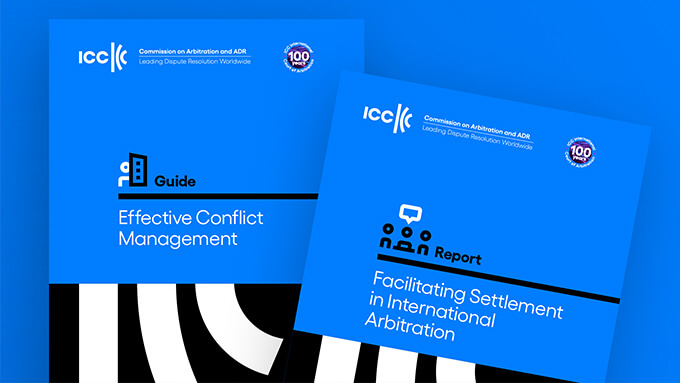Recognition of Partial Arbitral Awards in Light of the Court of Cassation’s Decision Dated 11 June 2019
Introduction
For arbitral awards rendered in international commercial arbitration to produce legal effects in foreign jurisdictions, they must be subjected to proceedings for “recognition” and “enforcement.” This process is governed by the New York Convention as well as by the provisions of the Law on Private International Law and Procedural Law (“PILPL”). One of the most contentious issues in practice concerns whether partial or interim awards delivered during ongoing arbitral proceedings may be susceptible to recognition. This article examines the issue of recognition of partial arbitral awards before Turkish courts in light of the 2019 judgment of the Turkish Court of Cassation.
The Dispute
In the present case, both a preliminary agreement and a share purchase agreement concluded between the parties contained separate arbitration clauses. Relying on the arbitration clause in the preliminary agreement, the respondent initiated arbitration proceedings before the International Chamber of Commerce (“ICC”). The arbitral tribunal, however, not only addressed claims under the preliminary agreement but also rendered an award on claims arising out of the share purchase agreement and ordered the claimant to pay damages. Subsequently, the claimant commenced a second arbitration under the arbitration clause of the share purchase agreement. In its decision dated 12 May 2014, the ICC arbitral tribunal held that exclusive jurisdiction with respect to disputes arising from the share purchase agreement rested with the second tribunal. The claimant sought recognition of this ICC decision in Turkey, invoking the risk that the earlier award rendered in favor of the respondent under the preliminary agreement could at any time be subject to enforcement proceedings in Türkiye.
The respondent objected, contending that the decision whose recognition was sought concerned solely the tribunal’s jurisdiction, was therefore of an interim character, did not address the merits of the dispute, and thus could not produce res judicata or evidentiary effect. On this basis, the respondent maintained that the decision could not be recognized and that the claimant lacked legal interest.
The court of first instance concluded that the arbitral award did not constitute a final determination on the merits but was rather an interim ruling on jurisdiction. Holding that interim rulings are not susceptible to recognition, it dismissed the action for lack of legal interest.
On appeal, the Regional Court of Appeal emphasized that pursuant to Article 60 of PILPL, recognition and enforcement of arbitral awards presupposes that the award is either final or binding upon the parties. Since the decision at issue did not bear a finality endorsement and was not enforceable, and given its interim nature, the appellate court held that it could not be recognized, and rejected the appeal on the merits.
The Court of Cassation’s Assessment
The Court of Cassation framed the central issue as whether the arbitral award dated 12 May 2014, rendered in the second arbitration, was of a nature susceptible to recognition. Diverging from the first instance court and the Regional Court of Appeal, which had regarded the decision as merely an interim ruling not eligible for recognition, the Court of Cassation drew a distinction between interim measures and partial awards. It observed that interim decisions are rendered during arbitral proceedings in respect of procedural matters or provisional measures and do not resolve the substance of the dispute. By contrast, partial awards definitively determine an independent and severable part of the dispute.
In this context, the Court held that the ICC tribunal’s ruling conclusively resolved the jurisdictional controversy between the parties and therefore constituted a final determination on an independent aspect of the dispute. The continuation of arbitral proceedings does not detract from the enforceability of such a partial award; what is decisive is that the award definitively resolves a particular aspect of the dispute.
The Court of Cassation further addressed the standard governing recognition and enforcement. Referring to Article V(1)(e) of the New York Convention in conjunction with the relevant provisions of PILPL, the Court emphasized that the Convention requires arbitral awards to be “binding” on the parties, rather than “final” in the sense of domestic res judicata. According to the Court, the finality requirement historically applied in Turkish practice must, subsequent to Turkey’s accession to the New York Convention, be interpreted in accordance with the criterion of binding effect. In the case at hand, the ICC Arbitration Rules provided that arbitral awards are binding upon the parties, and this was corroborated by a written confirmation from the ICC. The award in question was therefore binding from the moment of its issuance.
Finally, the Court rejected the finding of the court of first instance and the Regional Court of Appeal that the claimant lacked legal interest. It held that legal interest in recognition proceedings must be interpreted broadly. Recognition of the partial award in Turkey would afford the claimant protection in prospective enforcement proceedings and permit reliance on the award’s res judicata and evidentiary effects. For these reasons, the Court of Cassation held that the partial arbitral award was susceptible to recognition, that the claimant possessed legal interest in seeking recognition, and accordingly quashed the judgments of the lower courts.
Conclusion
The decision of the Court of Cassation dated 11 June 2019 constitutes a precedent in Turkish law on the recognition of partial arbitral awards. The Court drew a clear demarcation between interim decisions and partial awards, affirming that partial awards are capable of recognition insofar as they conclusively determine an independent portion of the dispute. By privileging the criterion of binding effect under the New York Convention over the domestic requirement of finality, the Court adopted a modern and arbitration-friendly interpretation. Moreover, by adopting a broad construction of legal interest, the Court acknowledged the practical importance of recognizing partial awards to avert future disputes and enhance legal certainty.
All rights of this article are reserved. This article may not be used, reproduced, copied, published, distributed, or otherwise disseminated without quotation or Erdem & Erdem Law Firm's written consent. Any content created without citing the resource or Erdem & Erdem Law Firm’s written consent is regularly tracked, and legal action will be taken in case of violation.
Other Contents

Emergency arbitration addresses the need for interim protection before the arbitral tribunal is constituted in institutional arbitrations. Arbitral institutions establish short timeframes to ensure parties can obtain interim relief quickly. For example, the International Chamber of Commerce (“ICC”) requires that the emergency...

International arbitration remains the preferred mechanism for resolving complex cross-border disputes. Yet despite its advantages—neutrality, enforceability, flexibility—arbitration is frequently criticized for being too slow, too expensive, and too procedurally heavy. Often, parties proceed through hearings and...

Arbitrability, the determination of whether a specific subject matter can be resolved through arbitration, constitutes a fundamental aspect of arbitration within the scope of international commercial dispute resolution. This concept draws a delicate balance between party autonomy—a fundamental principle of arbitration...

The recognition, enforcement, and annulment of foreign court and arbitral awards in Türkiye are processes in which public policy emerges as one of the most critical criteria for review, both in theory and in practice. The Court of Cassation decisions determine the direction of case law regarding the scope and...

As is well known, the action for annulment of objection is a special type of lawsuit regulated under Article 67 of the Turkish Execution and Bankruptcy Law No. 2004 (“EBL”). The primary objective of this action is to nullify a debtor’s objection to execution proceedings. Despite its procedural function of facilitating...

On 16 December 2024, the London Court of International Arbitration (“LCIA”) released its third batch of challenge decisions covering the period from 22 July 2017 to 31 December 2022. The LCIA has also issued a detailed commentary that identifies key legal themes and analytical trends, offering practitioners...

The International Chamber of Commerce (“ICC”) has published its report on the dispute resolution statistics for 2023 (“Report”) , shedding light on the evolving landscape of international arbitration...

Syndicated loans undoubtedly hold a significant position among global financing models. In 2023 alone, 3,655 syndicated loans were provided to companies in the US, with their total value reaching USD 2.4 trillion...

Preliminary attachment refers to the temporary seizure of a debtor's assets to secure a creditor's claim. While it serves as a vital instrument for safeguarding the rights of creditors, it is subject to specific and stringent conditions under Turkish law to prevent any potential misuse...

One of the most important reasons for parties to choose arbitration is the opportunity to freely choose their arbitrators. This freedom granted to the parties also distinguishes arbitration from proceedings before state courts, where the parties are deprived of the power to determine the judges who will conduct the...

The 6th Civil Chamber of the Court of Cassation ruled on October 12, 2022, that national courts have jurisdiction over objections to provisional measures in international arbitration disputes...

The declaration of intent to resolve disputes through arbitration is the fundamental constituent element of an arbitration agreement. To speak of a valid arbitration agreement, the parties' intention to arbitrate must emerge in a way that leaves no room for dispute...

In the wake of the evolving dynamics of commercial transactions, the Netherlands Arbitration Institute Foundation (NAI) announced new arbitration rules . 2024 NAI Arbitration Rules are in force as of 1 March 2024 and will be applicable on proceedings filed on or after this date...

With the global shift to online activities, domain names play a crucial role in identifying businesses. It is more common than ever for a domain name to be registered that is confusingly similar to a trademark or service mark...

The ICC Commission on Arbitration and ADR (“Commission”) published a new guide and report with the aim to increase awareness on alternative dispute resolution (“ADR”) mechanisms to prevent disputes and strengthen the relationship between all stakeholders.The Guide on Effective Conflict Management...

Mergers and Acquisitions (“M&A”) are restructuring of companies or assets through various types of financial transactions, such as mergers, acquisitions, purchase of assets, or management acquisitions. This Newsletter article covers M&A disputes being solved before arbitral tribunals.

In the context of arbitration practice, the principle of revision au fond means that the courts can not examine the merits of a dispute when reviewing an arbitral award. This principle is most commonly encountered in set aside and enforcement proceedings. An arbitral award is evidence of the parties’ willingness...

Under Turkish law, parties may agree on the settlement of disputes that have arisen or may arise, regarding the rights that they can freely dispose of, by arbitration. However, disputes which are not subject to the will of parties, such as the disputes relating to in rem rights of immovables, bankruptcy law...

On 4 September 2020, a research project “Does a Right to a Physical Hearing Exist in International Arbitration?” was launched by an International Council for Commercial Arbitration (“ICCA”) taskforce. Due to the Covid-19 pandemic, many arbitration hearings were held online. Many institutional rules...

Dubai International Arbitration Center amended its Arbitration Rules on 25 February 2022. The 2022 Arbitration Rules were published on 2 March 2022 and came into effect on 21 March 2022. The Rules will be applied to arbitrations that are filed after 21 March 2022; unless parties agree otherwise...

In the aftermath of the Achmea decision, controversies on intra-EU arbitrations continue. Most recently, the Paris Court of Appeal has annulled two arbitral awards rendered against Poland. Meanwhile, the Higher Regional Court of Berlin has refused to declare that an Irish investor’s ICSID claim...


Under Turkish law, the legal remedy that can be applied against arbitral awards is an annulment action. Law on International Arbitration No. 4686 (“IAL”) finds its application area in arbitration proceedings where Turkey is the place of arbitration...

It is well known that following a decision of the Court of Justice of the European Union, problems arose related to arbitration of intra-EU disputes, and particularly arbitration under the Energy Charter Treaty...

Arbitration in corporate law contains controversial elements in many respects, especially the issue of arbitrability. Even in legal systems where these disputes are considered to be arbitrable, uncertainties remain on whether an arbitration clause can be included in the articles of...





Arbitration has benifited from a great increase in the use of technology which has directly effected the conduct of proceedings. More particularly, with digitalization, the way that we conduct arbitration proceedings has been changed to reflect the current needs of parties, with an aim of increasing time...

































































